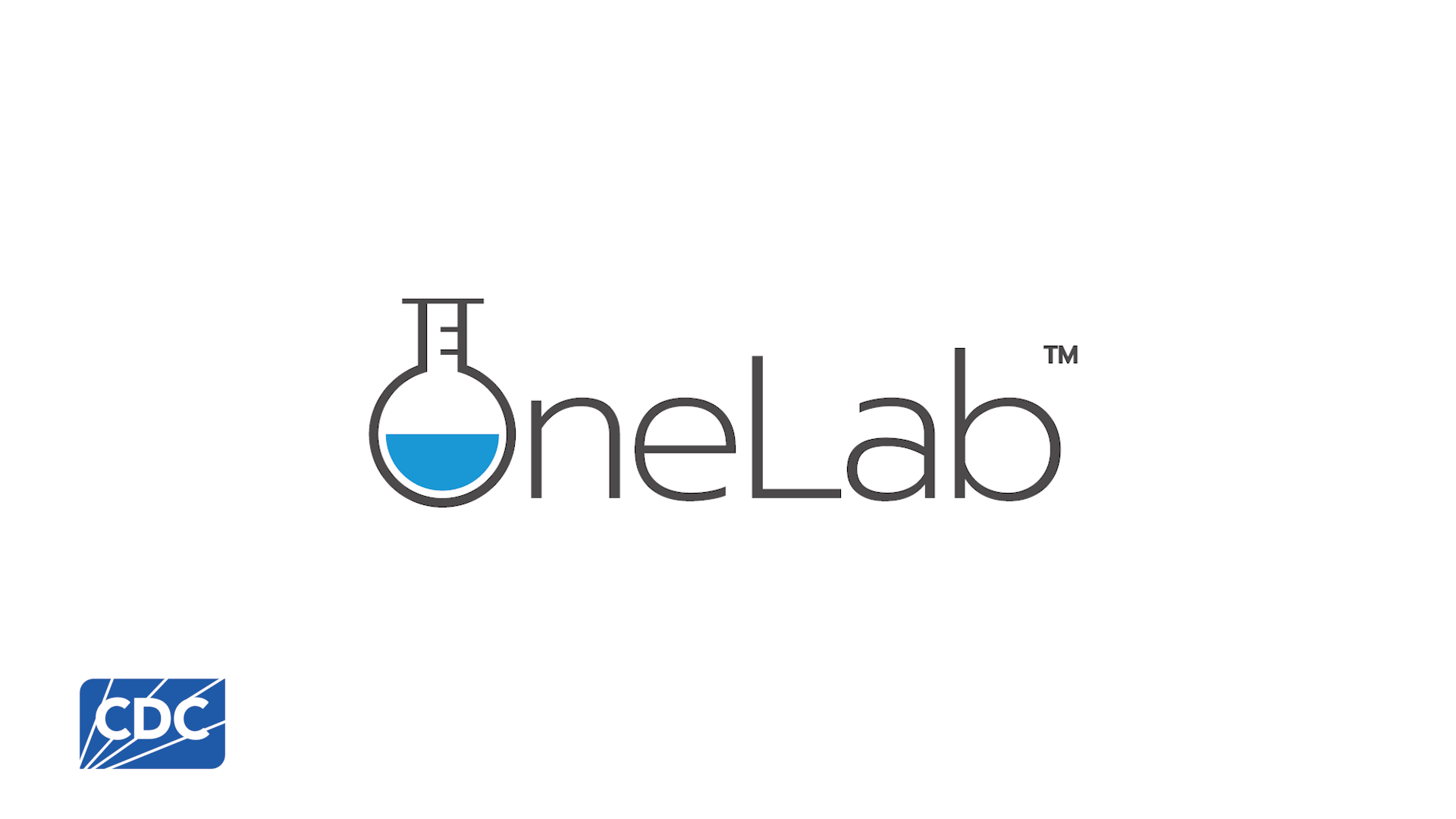Key points
- CDC OneLab™ unites clinical and public health laboratory professionals and the testing community to improve training for public health emergencies.

What it is
CDC OneLab™ is an initiative developed to bridge, train, and sustain a capacity-building community among laboratory professionals and testers. This initiative is designed to collectively support rapid, large-scale responses to public health emergencies. OneLab aims to establish a sustainable learning community to equip the laboratory workforce and testing community with essential tools and resources to improve public health and patient outcomes.
OneLab™ is excited to announce the Fundamentals of Quality Management Systems course!
New training!
OneLab REACH
OneLab REACH™ is a customized learning management system for laboratory professionals and the testing community. OneLab REACH™ provides training resources that cover essential topics, including:
- Preparedness.
- Quality.
- Safety.
- Core Science.
- Informatics.
OneLab Network
OneLab Network is a collaborative network of public health and clinical laboratory professionals and CDC.
Through OneLab Network, laboratory professionals can access customized laboratory training resources and connect with each other and CDC through real time events.
Sign up now to access:
- Training Resources: Free laboratory-relevant webinars, video job aids, eLearning, and virtual reality courses.
- CDC Laboratory Training Experts: A direct channel for laboratory professionals to share their training needs with CDC instructional designers.
- Community of Practice: A peer-to-peer learning community of laboratory professionals.
OneLab TEST
OneLab Timely Education and Support of Testers (TEST) is a new collaborative network of professionals and volunteers who perform or coordinate testing in non-laboratory settings.
OneLab TEST will strengthen connections between the testing community and CDC to support the ever-increasing need to expand access to diagnostic testing.
Sign up now to access:
- Community of Practice:
- Join a diverse, interconnected community of testers.
- Network with testing peers and experts.
- Join a diverse, interconnected community of testers.
- Training Resources:
- Access FREE online courses, resources, and job aids.
- Access FREE online courses, resources, and job aids.
OneLab VR
OneLab VR is a multiplayer virtual reality (VR) environment with an ever-expanding suite of laboratory training scenarios.
Learners can take on-demand VR trainings, and trainers can use the multiplayer space to deliver live trainings to their staff.
Sign up now to access:
- 12 Different Laboratories in a 50,000-square-foot virtual facility created for clinical and public health laboratory training.
- 5- to 10-Minute Training Scenarios designed to quickly familiarize the learner with over 100 (and counting) custom-built pieces of laboratory equipment, safety, and procedures.
- Multiplayer Functionality: OneLab VR includes a multiplayer lobby where trainers can create their own OneLab VR environment and invite their students to join them live in virtual reality.
- Teachers and students can see, hear, and talk to one another in real time.
- Teachers and students can see, hear, and talk to one another in real time.
OneLab VR is free and available on OneLab REACH and was designed for the Meta Quest headset. Learn more about downloading "OneLab VR" on your headset from the OneLab VR page.
OneLab Summit
OneLab Summit is a free virtual event that connects laboratory professionals in real time to support a unified response to laboratory education and training needs.
Attendance is open to anyone interested or involved in the laboratory profession. OneLab Summit programming is most relevant to people who provide education or training to clinical and public health laboratory professionals.
OneLab partner toolkits
Help us spread the word about CDC OneLab and its free resources for laboratory professionals and testers. We invite you to use the customizable materials in the toolkits to share information about these resources with your networks!
Continuing education
CDC Laboratory Training offers continuing education (CE) credit for many of our training courses. Course announcements will clearly identify these courses and state the type(s) of CE available. Individuals who successfully complete all course requirements will receive CE credit.
Continuing education for laboratory professionals
The Centers for Disease Control and Prevention, Division of Laboratory Systems is approved as a provider of continuing education programs in the clinical laboratory sciences by the American Society for Clinical Laboratory Science (ASCLS) Professional Acknowledgement for Continuing Education (P.A.C.E.®) program.
P.A.C.E.® is an administrative system established to stimulate and serve as the quality assurance mechanism for continuing education programs offered to clinical laboratory professionals by ASCLS constituent societies, the laboratory industry, government agencies, hospitals, and educational organizations. CDC Laboratory Training P.A.C.E.® approved programs are accepted by the Board of Certification for recertification, and for license renewal in all licensure states except for Florida. CDC Laboratory Training courses are included under the ASCLS P.A.C.E.® California Agency license, which is indicated on the P.A.C.E.® certificate received after successful completion of a course.
Continuing education for health professionals
CDC is accredited by multiple organizations to provide various types of CE for health professionals. CDC Laboratory Training may provide CE for:
- Physicians.
- Physician Assistants.
- Pharmacists.
- Nurses.
- All health professionals.
- Certified Health Education Specialists (CHES®).
- Master Certified Health Education Specialists (MCHES®).
- Certified Public Health Professionals (CPH).
- Veterinarians.
- Division of Laboratory Systems (DLS)
